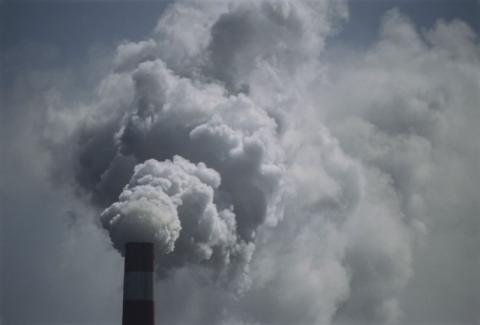High air pollution in Northern Ireland

HIGH levels of air pollution (particulate matter) are currently being monitored in the Belfast area. MODERATE levels of air pollution are being monitored in other urban centres across Northern Ireland.
The air quality forecast indicates that the pollution will disperse through the day. Similar pollution levels may occur tomorrow morning, depending on weather conditions.
These pollution levels are the result of the cold, calm, foggy weather conditions we are currently experiencing, which can lead to the build up of local emissions from vehicles and home heating.
During periods of High Air Pollution the symptoms of people with lung or heart disease may worsen. Healthy people are unlikely to experience any ill effects.
Hourly updates on levels of particulate matter (PM10 and PM2.5), sulphur dioxide, nitrogen dioxide, ozone and carbon monoxide are available on the Department of Environment’s website: www.airqualityni.co.uk and the Department’s freephone helpline 0800 556 677, which also offers health advice to those who may be particularly sensitive to air pollution.
High air pollution forecast for Northern Ireland
1. Air pollution is described as “low (1-3)”, “moderate (4-6)”, “high (7-9)” or “Very High (10)” in relation to the presence of particulate matter, sulphur dioxide, nitrogen dioxide, carbon monoxide and ozone. Classifications are based upon the pollutant in the highest band based upon the advice of the independent Committee on the Medical Effects of Air Pollution.
2. In addition to the sources of air quality information described in the press release, the information and the air pollution forecast is also sent by e-mail, free of charge, every day to a variety of outlets including regional and national newspapers, television and radio stations, environmental groups, district councils, and international organisations. If you would like to be added to this individual service, ring the Government's contractors at Ricardo-AEA (Paul Willis on 0870 1906602).
Health Advice
3. The Following advice on health applies when air pollution is “high” or “very high”
4. When pollution is high, sensitive people may notice their symptoms worsen and may need to act to reduce the symptoms or their exposure to the pollution. Asthmatics will find that their symptoms will ease through use of their relief inhaler in the usual way advised by their doctor. Others affected by the pollution may wish to reduce the time they spend outdoors or avoid busy, congested streets. If symptoms persist, affected people should consult with their doctor.
Presentation of the information
5. When air pollution levels are presented to the public, an overall summary is provided followed by pollutant specific information. When the overall summary is presented for each region, levels of air pollution are described as those occurring in the highest band for any individual pollutant. For example, if levels of all pollutants in a region were low, with the exception of one pollutant that was high, then in the overall summary the air pollution for that region would be described as "high".
Action individuals can take to reduce pollution
6. We can all contribute to reducing the current high levels by avoiding burning solid fuels if possible, by burning only smokeless fuels in smoke control areas. It is also important to avoid lighting bonfires while pollution levels are high.
7. Road vehicles are a major source of many pollutants in urban areas. Before using your car ask yourself - do I really need to make this journey? Do I really need to use the car, or could I walk or cycle?
8. If you must drive, switch off the engine if you expect to be stationary for more than a couple of minutes, and drive smoothly - it will save you fuel and money and you will emit less pollution.
9. All media enquires should be directed to the DOE Press Office on 028 9025 6058 or out of office hours, please contact the Duty Press Officer via pager number 07699 715 440 and your call will be returned.
